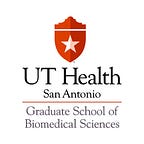What if there was medication to treat cocaine abuse?
Researcher Alicia Avelar is interested in drug addiction and drug abuse research.
“Cocaine abuse is a huge problem. In 2014, around 900,000 people 12 years and older had cocaine use disorder. There are a lot of problems that are also associated with cocaine use — -death, crime, ruined relationships,” she said.
Avelar is interested in discovering a useful treatment for cocaine abusers.
“Right now there has been no pharmacological treatment to reduce cocaine abuse,” she explained. “There’s methadone for heroin, nicotine patches for tobacco but there’s nothing to help cocaine users reduce or end their addiction.”
Currently there are no medications to treat cocaine abuse, and she explained that the available therapies to reduce cocaine use are insufficient.
“If we can reduce the effects of cocaine at a cellular level then we can get closer to finding a pharmacological treatment for cocaine users,” she said.
A
velar is currently working in the lab of Dr. Michael Beckstead to understand the effects of atypical dopamine transporter inhibitors on dopamine neurotransmission.
“This research is important because there have been behavioral studies that have shown that atypical dopamine transporters can reduce the effects of cocaine on animal behavior. If we find that these compounds reduce the effects of cocaine on dopamine cells as well, then there is a chance that the compounds may reduce the effects of cocaine on humans and be useful treatments for cocaine abuse in the future.”
Avelar is a graduate student in the Neuroscience track of the Integrated Multidisciplinary Graduate Program now called Integrated Biomedical Sciences program. As a biology major and psychology minor at Illinois State University, she didn’t always know that this would be the path for her.
“During my final year of my bachelor’s degree I first became interested in neuroscience,” she said. “I learned of an opportunity to work in a neuroscience research lab as a paid summer intern. I was one of two students chosen for the summer internship and that experience in doing scientific research cemented my interest in studying neuroscience.”
After her internship, she decided to get a master’s degree studying neuroscience at Illinois State University. While she was at Society for Neuroscience conference to present her master’s research, she met her future mentor.
“There was a ‘dopamine social’ at the conference, which was a social with many private investigators, graduate students, and postdocs specializing in dopamine research. Dr. Beckstead was there and he was interested in finding someone for his lab and mentioned that he was working on electrophysiology, which was something I wanted to learn about so I decided to apply to the graduate school of UT Health San Antonio.”
In addition to research, Avelar likes to volunteer and judge local science fairs. She is also part of the Initiative for Student Maximizing Student Development (IMSD R25 GM095480), a National Institute of Health student development program for institutions with research-intensive environments.
“I really enjoy when kids get excited about science. I like encouraging them to keep going even if their experiment doesn’t work out as planned,” she said.
Avelar said that she has enjoyed her time in graduate school and will miss the seminars that are routinely on campus.
“It always impresses me that we get all these great scientists who come to meet us. It’s been really helpful to ask them one on one questions and learn about how they got to where they are and how to get to their level myself,” she said.
She is currently working on a first author paper and after graduation she hopes to find a postdoc position where she can continue to work on drug addiction research.
“My boss and I have been having lots of useful discussions on how our work can help us find useful solutions for drug abuse,” she said. “Writing this first author paper has also helped me think about how my work fits into the big picture and how the information we contribute could be useful when combined with other literature.”
This article is part of the “Meet The Researcher” series which showcases researchers at the Graduate School of Biomedical Sciences at University of Texas Health Science Center San Antonio.
Copyright © 2017 The University of Texas Health Science Center at San Antonio
